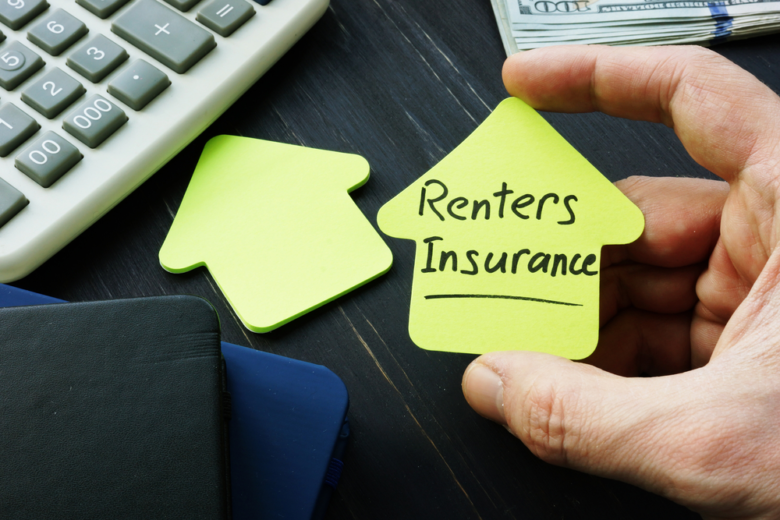When you rent a house, you have to do some things and take risks. Landlord insurance is a safety net for landlords, but tenants need equally strong protection. That is why extensive rental protection is important. But what is full rental insurance coverage and why is it necessary? Let’s get into the details.
What Does ‘Comprehensive Rental Insurance’ Mean?
Comprehensive rental insurance, also known as renters insurance, is a type of coverage provided specifically to renters. It can provide you with financial protection if your personal belongings are lost or damaged in your rental property. It also provides you with legal protection if someone is injured while visiting your rental property.
Why You Need Rental Insurance:
Storage of Personal Belongings
Imagine coming home to find your apartment flooded or your belongings taken. What would you do without rental insurance? You have to pay for everything yourself. Comprehensive rental insurance protects personal property against theft, fire, misuse and certain types of water damage.
Liability Insurance
Accidents happen, and if someone is injured during your rental, you may have to pay medical bills. Liability coverage in your rental insurance policy can help you pay for attorney fees and hospital bills if you are found responsible for someone else’s injuries.
Additional Living Costs
A loss covered by rental insurance, such as fire or major water damage, could make your rental property uninhabitable. If this happens, your insurance will reimburse temporary accommodation. This includes eating at restaurants, hotel stays, and other expenses while your home is being repaired.
What Does Renters Insurance Cover?
Personal Stuff
Rental insurance usually covers items such as furniture, electronics, clothing and other personal items. Coverage limits can vary, so it’s important to list all your assets and make sure your policy covers their full value.
Liability Protection
Liability protection protects you if someone is injured on your rental property, or if you accidentally damage someone else’s property. If you are taken to court, this may also include attorney fees.
Medical Expenses
Regardless of who is at fault, if a guest is injured in your home, renter’s insurance can cover medical bills. Your policy may have limits on this coverage, so it is important to understand these limits.
Additional Living Costs
Like we said, if your rental property is damaged and you need to live somewhere else temporarily, renters insurance can help cover additional living expenses.
What Renters Insurance Does Not Cover:
Unnatural Events
Storms, floods, and earthquakes are just a few examples of natural disasters that regular renters insurance typically does not cover. For these things to happen, you may need to purchase additional coverage or separate coverage.
Maintenance Issues
Typically, rental insurance does not cover damages such as mold or pest outbreaks that occur when a property is not maintained or neglected. These are seen as the responsibility of the landlord.
Something Valuable
Some valuable items, such as jewelry, art, and collectibles, are not covered, although personal property is covered. To fully cover these matters, you may need to take out additional insurance, also called a rider or endorsement.
How to Choose the Best Renters Insurance:
See What You Need
First, make a list of all your personal belongings and guess their value. This will help you determine how much personal property coverage you need.
Look at the Policy
There are different types of rental insurance. It’s important to shop around and compare plans from different companies to get the best coverage at the best price.
Understand the Policy
Read the policy carefully to understand what it does and does not cover. Pay close attention to your coverage, deductible, and any other options you have.
Consider Getting More Coverage
If you own valuables or live in an area prone to natural disasters, you may need to purchase additional coverage. You may have to pay more, but it could save you a lot of money if something bad happens.
Conclusion:
Comprehensive rental insurance is a must-have for renters, as it protects their belongings and provides liability coverage, giving them peace of mind. You can ensure that your rental property is properly insured if you know what rental insurance covers and how to choose the right policy. Remember, the small cost of renter’s insurance is worth the peace of mind and financial protection it provides. So take your needs into account, check out the different plans, and get full rental insurance today.
FAQs:
1. What exactly does full rental insurance cover?
Often, comprehensive rental insurance can protect your furniture, electronics, clothing and other personal belongings against theft, fire and certain types of water damage. It also comes with liability protection, which can cover medical bills and legal fees if someone is injured on your rental property. It can also cover additional living expenses if your rental property becomes uninhabitable due to a loss of warranty.
2. If my landlord has renters insurance, do I still need it?
Yes, you need renter’s insurance, even if the owner has renter’s insurance. Typically, landlord insurance only covers the building itself, not your belongings. Renter insurance is designed to protect your belongings and cover your legal bills if someone is injured on the property you are renting.
3. Does the rental insurance cover natural disasters?
Most rental insurance policies do not cover natural disasters such as hurricanes, floods or earthquakes. You may need to take out additional insurance or another policy for such matters. If you live somewhere where natural disasters occur regularly, you should review your policy carefully and consider purchasing more coverage.
4. What can I do to reduce the cost of renter’s insurance?
There are several ways you can reduce your rental insurance rates. You can save money by bundling rental insurance with other policies, such as car insurance. You can also lower your rates by increasing your deductible, but you must make sure you can afford the higher deductible. Installing smoke detectors and security systems can save you money, while maintaining a high credit score can help you get a lower interest rate.
5. What should I do if I need to make a claim on my renter’s insurance?
If you need to file a claim, start by taking photos or videos of the damage and listing any missing or damaged items. Call your insurance company to file a claim as soon as possible and follow their instructions. Be prepared to provide extensive details, such as records and, if necessary, a police report. Work with a claims assessor; they may need to inspect the damage to speed up the process.



